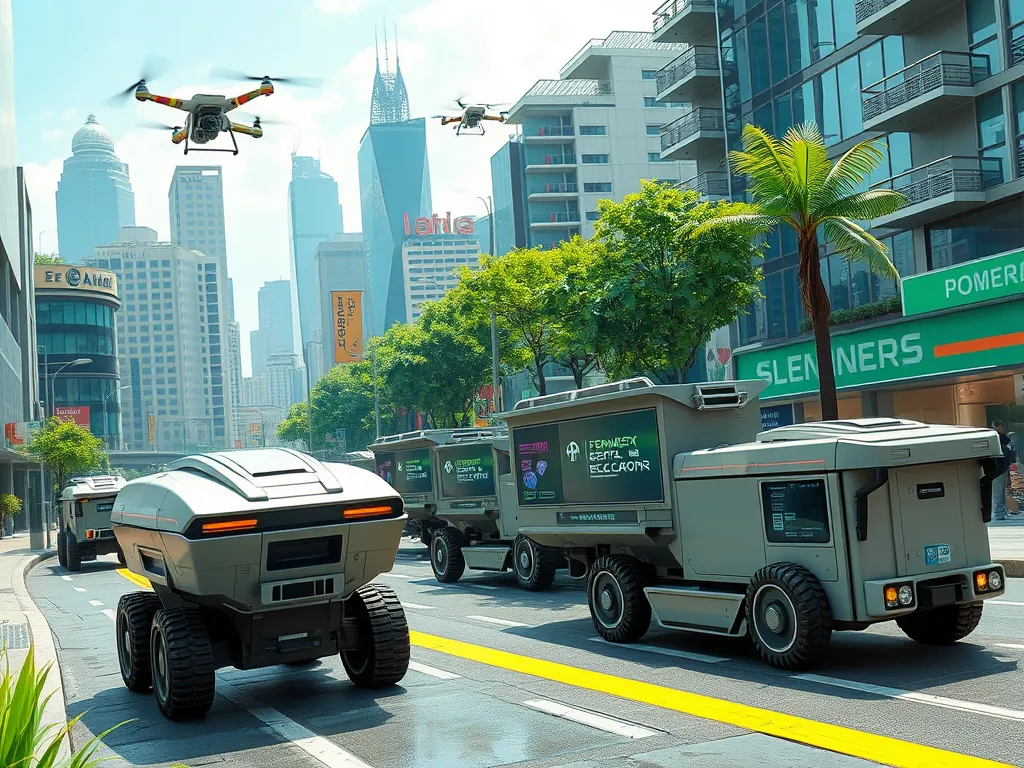Explore Innovations in Dumpster Rental and Waste Removal Tech

Innovations in Dumpster Rental and Waste Removal Technology
The world of waste management is rapidly evolving, driven by a need for efficiency and sustainability. Innovations in dumpster rental and waste removal technology are transforming how businesses and municipalities manage waste. From smart monitoring systems to eco-friendly disposal methods, these advancements not only improve service delivery but also contribute to a cleaner environment.
At the forefront of these innovations are smart dumpster solutions that leverage Internet of Things (IoT) technology for real-time monitoring. This technology enables service providers to track dumpster status, optimize collection routes, and enhance overall efficiency. As a result, waste removal services can respond more effectively to customer needs, reducing operational costs and minimizing environmental impact.
Another significant breakthrough in waste management is the integration of eco-friendly waste disposal methods. These methods promote sustainability through the use of biodegradable liners, advanced recycling technologies, and innovative composting systems for organic waste. By adopting these practices, companies can significantly reduce landfill contributions and support a circular economy.
Automated waste collection systems are also transforming dumpster rental services. The introduction of robotic arms for lifting and dumping dumpsters, along with the use of drones for monitoring waste levels, demonstrates how automation is reshaping the industry. Self-driving waste collection vehicles are on the horizon, promising increased efficiency and safety in waste management operations.
Lastly, mobile apps are revolutionizing how users engage with waste management services. These applications allow customers to schedule pickups, track waste disposal efficiency, and provide feedback to improve service quality. By empowering users and improving communication between service providers and customers, mobile apps play a crucial role in the modernization of waste management practices.
Smart Dumpster Solutions
One of the most significant innovations in dumpster rental and waste removal technology is the implementation of IoT technology in dumpster monitoring. These smart dumpsters are equipped with sensors that provide real-time data on waste levels, allowing waste management companies to optimize their collection schedules and reduce unnecessary trips. This not only saves time and resources but also helps minimize carbon emissions associated with waste collection vehicles.
Innovative approaches to waste management can be explored through the initiatives outlined by DMA12.
Additionally, GPS tracking for waste collection is another vital aspect of smart dumpster solutions. This technology allows waste management companies to monitor their fleets in real-time, ensuring that they can respond quickly to changing needs and conditions. With GPS tracking, routes can be optimized based on traffic patterns and service demand, further increasing operational efficiency.
Real-time fill-level sensors are essential components of smart dumpsters, providing vital information about when a dumpster is nearing capacity. This data enables waste collectors to plan more efficient routes, reducing downtime and increasing the number of pickups made daily, ultimately leading to a more responsive waste management system.
Eco-Friendly Waste Disposal Methods
Biodegradable dumpster liners are an innovative approach to waste management that addresses environmental concerns. Unlike traditional liners, biodegradable options break down over time and do not contribute to landfill waste. This innovation is particularly important for companies looking to enhance their sustainability credentials and reduce their carbon footprint.
Recycling technologies have also advanced significantly in recent years. Innovative sorting systems can automatically identify, separate, and process recyclable materials, leading to higher recycling rates and less contamination in recycling streams. These technologies are crucial in promoting effective waste diversion strategies.
Composting systems for organic waste are another eco-friendly innovation that enhances waste removal technology. By allowing organic waste to decompose naturally, companies can reduce the amount of waste sent to landfills while producing valuable compost that can be used in agriculture, landscaping, and other applications.
Automated Waste Collection Systems
The development of robotic arms for dumpster lifting and dumping represents a significant innovation in waste collection processes. These robotic systems reduce the need for manual labor, enhancing safety and efficiency. By automating this aspect of waste management, companies can improve their operational workflow and reduce labor-related costs.
Drones are becoming increasingly integral to waste management, especially in monitoring and analyzing waste levels in hard-to-reach areas. Drones equipped with cameras and sensors can provide valuable insights into waste accumulation, helping companies plan their collection efforts more effectively.
Self-driving waste collection vehicles are the future of waste management. These vehicles promise to revolutionize the industry by automating collection routes, reducing labor costs, and minimizing human error during operations. As technology advances, the integration of autonomous vehicles will undoubtedly reshape the waste collection landscape.
Mobile Apps for Waste Management
Mobile apps are playing a transformative role in waste management services. Users can easily schedule pickups via mobile apps, streamlining the process and enhancing customer satisfaction. These applications provide a convenient platform for users to manage their waste disposal needs without the hassle of phone calls or paperwork.
Tracking waste disposal efficiency through mobile apps allows companies to monitor performance metrics more effectively. This data can inform operational improvements and help identify areas where services can be optimized to better meet customer demands.
User feedback systems integrated into mobile apps enable customers to provide insights on their experiences with waste management services. This feedback loop is essential for service providers to continually improve their offerings and adapt to changing customer needs.
Innovative Waste Sorting Technologies
AI-based waste sorting systems represent a leap forward in waste management efficiency. These systems utilize machine learning algorithms to recognize and categorize different types of waste, ensuring that recyclable materials are separated from general waste effectively. This technological advancement improves the accuracy of sorting processes and enhances recycling efforts.
Automated sorting conveyor belts utilize advanced sensors and cameras to streamline the waste sorting process. By automating these systems, waste management companies can handle larger volumes of waste while maintaining accuracy and efficiency, ultimately increasing recycling rates.
Advanced material recovery facilities (MRFs) are equipped with cutting-edge technologies that improve the recycling process and maximize recovery rates. These facilities employ a variety of sorting techniques and technologies to ensure that as much material as possible is diverted from landfills, contributing to more sustainable waste management practices.
